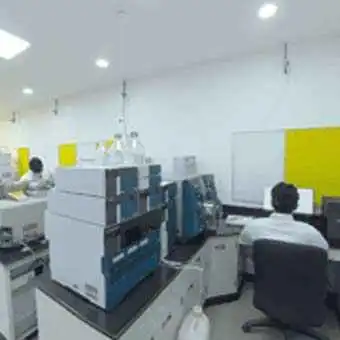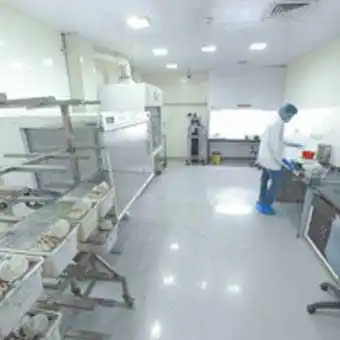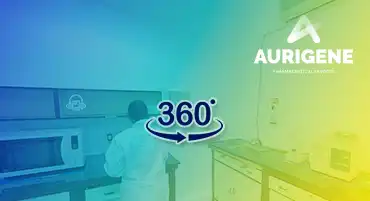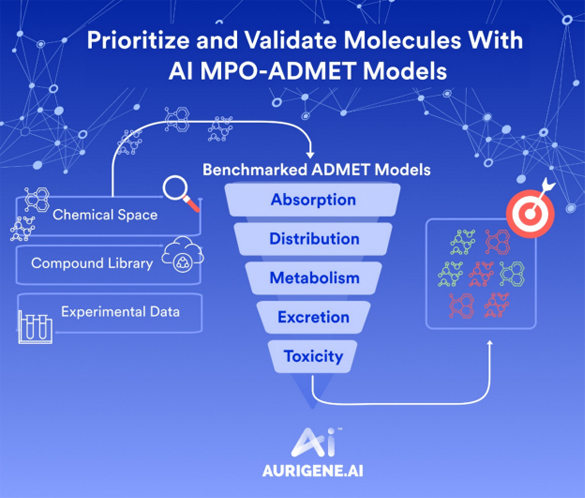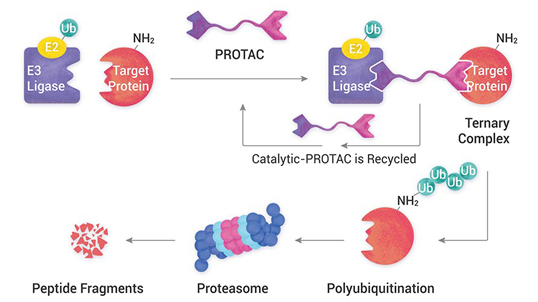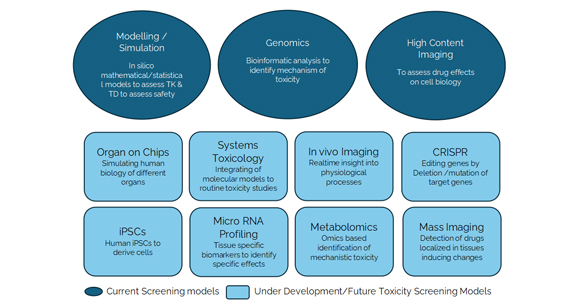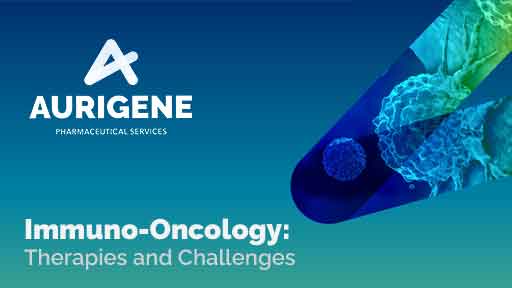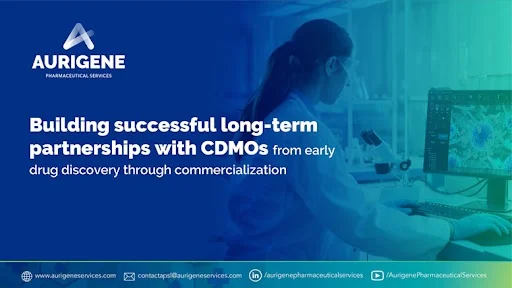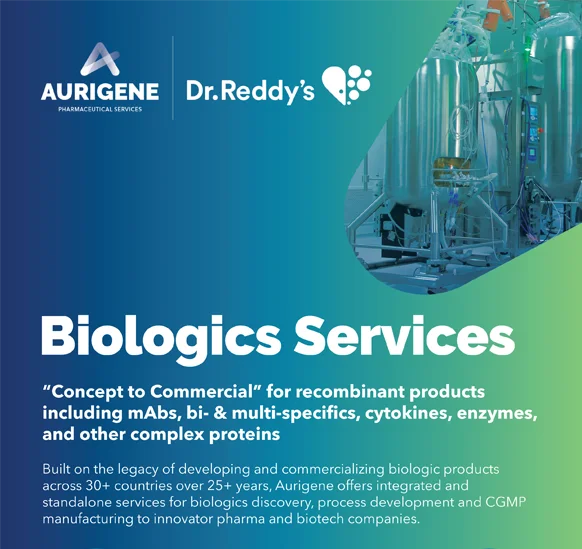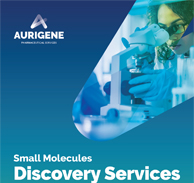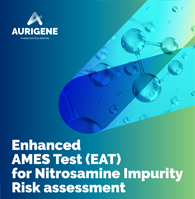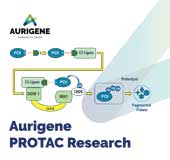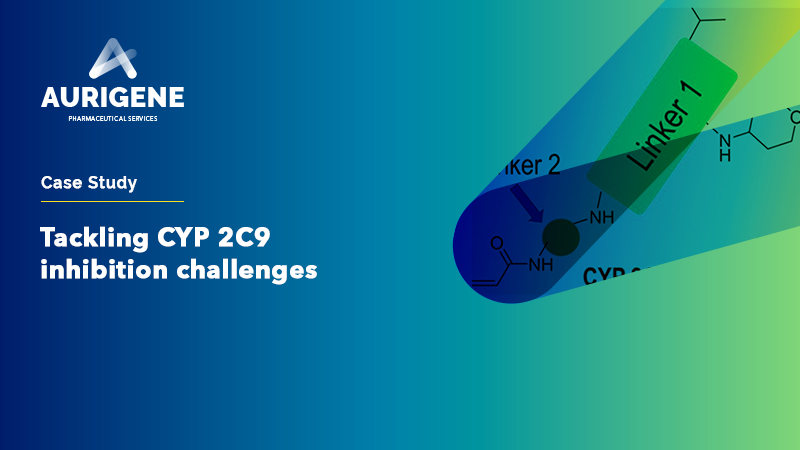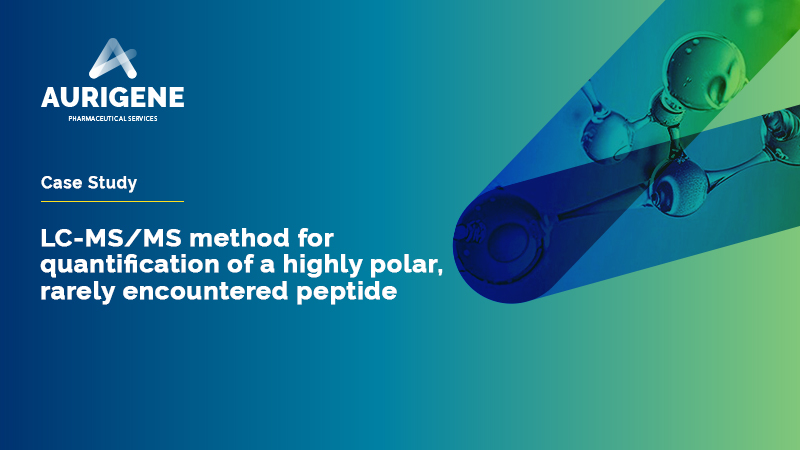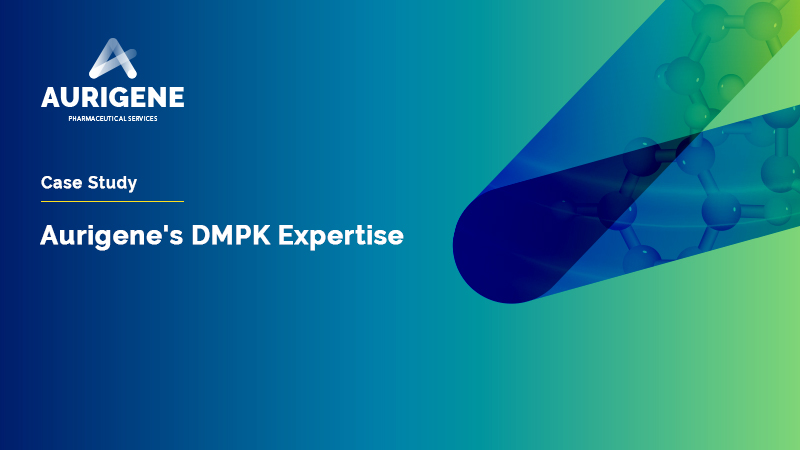
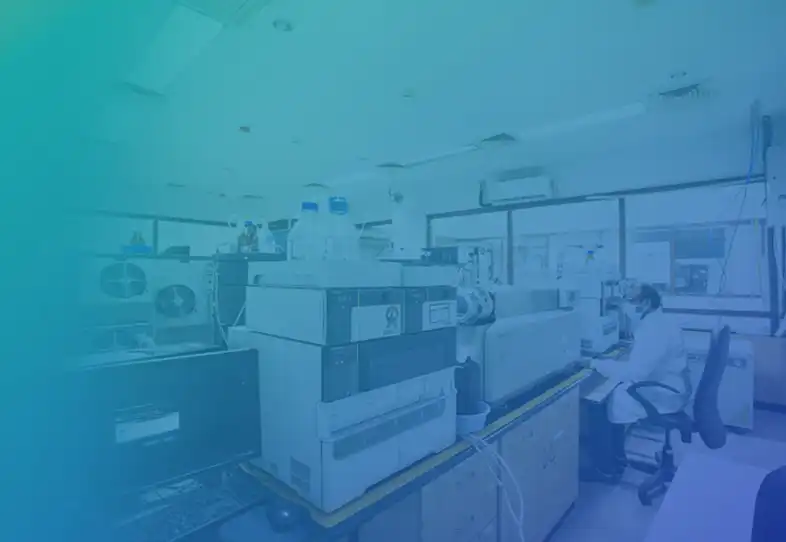
We operate our Discovery Biology services from our R and D centers in Hyderabad and Bangalore. The facilities are equipped to perform standalone services and integrated services across In vitro biology, DMPK, In vivo pharmacology, Microbiology and Toxicology services.
In vitro Biology
In vitro lab at Aurigene is equipped to perform standard and highly specialized biochemical and cell-based assays across different disease areas, multiple targets and a broad range of drug classes. In addition to the regular instruments like plate reader, biosafety cabinets, we have high end instruments for quantification of drug to protein interaction.
Videos
DMPK
DMPK lab infrastructure covers a lab area of 10,000 sq.ft. with in vitro ADME and tissue culture labs. We operate GLP as well as Non-GLP bio analytical labs with high-end instruments including LC-MS/MS, Sciex API, Waters Xevo TQS, HPLCs/UFLCs with UV, PDA and fluorescence detectors. The in vivo and PK studies are conducted in AAALAC accredited animal facilities. In addition to the above, we also have a compound management and data automation system set up for DMPK.
In vivo Pharmacology
We have an AAALAC & CPCSEA accredited animal facility through which we can handle 600 rodents at any given time. We have more than 50 in vivo efficacy validated models available for testing. We provide PK/ PD correlation studies, biomarkers establishment studies across various targets and have advanced equipment for testing of compounds at early-stage drug discovery including anesthesia machine, electronic vonfrey, randall-sielto, capacitance meter, plethismomteter. We have completed 1000+ efficacy studies including submissions to the US FDA and DCGI.
Microbiology and testing
Our microbiology laboratory is biosafety Level 2 compliant, and it has been audited by US FDA in 2019 with Zero 483 observations. The labs are well equipped with all required instruments like biosafety cabinets, shaking incubator, carbon dioxide incubator, spectrophotometer, microscope and automatic microbial colony counter. We have a media laboratory where all types of microbiological media are prepared in-house using dehydrated powders.
Toxicology
We offer broad range of toxicology services from our GLP certified toxicology lab. We have an experience of conducting more than 9000 toxicity studies during the past 20 years. All toxicology studies are conducted in accordance with national and international test guidelines and in compliance with OECD principles of Good Laboratory Practice (GLP). The animal toxicity studies include short and long term non-GLP exploratory and GLP IND toxicity studies. The tests are carried out in rats and mice, and are maintained individually in ventilated cages. Our animal facility is AAALAC accredited. Our expert team of scientists are proficient in conducting assays such as bacterial reverse mutation test, in vivo and in vitro micronucleus test, in vivo and in vitro chromosomal aberration test. Clinical pathology laboratory is well equipped with fully automated analyzers for hematology, coagulation, clinical chemistry, and urine analysis. Histopathology laboratory is well equipped with state-of-the-art instruments to prepare good quality slides for various organs and tissues collected from experimental animals. These histopathology slides are examined microscopically by expert veterinary pathologists for safety evaluation of test articles. Apart, from standard toxicity assays, we also perform customized toxicity studies as proposed by the sponsors.
Animal Facility/Vivarium
To support our numerous discovery biology preclinical services, we have established and validated animal models for efficacy, pharmacokinetics and toxicology services. The vivarium is AAALAC accredited since June 2021 in appreciation of its animal welfare policies and for the care and use of laboratory animals We follow experimental protocols approved by Institutional Animal Ethics Committee (IAEC) / registered with Committee for Control and Supervision of Experiments on Animals (CPCSEA). The toxicology lab was established in the year 2002 and has been a OECD-GLP certified testing facility since 2003. Our vivarium has pollution board registered bio-waste disposable management systems and our institution has registered Institutional Biosafety committee ( IBSC) under department of Biotechnology, India .
Monitoring Systems
There are numerous monitoring systems available to help you understand experimental and other parameters.
- Rodents are procured from subsidiaries of Taconic and Charles River breeding facilities in Hyderabad. Select rodents and beagle dogs (Charles River and Harlan Laboratories) are bred in-house.
- The vivarium has restricted access control and CCTV monitoring system.
- Veterinary examination is regularly done, feed store area and four dog kennels are available.
- Physical examination of animals by veterinarian is regularly done.
- Health monitoring program as per FELASA guidelines is followed.
- Feed, water and bedding material analysis is done.
- Ethical efforts to avoid pain and distress to experimental animals is followed.
- Anesthesia and Euthanasia is given as per regulatory guidelines.
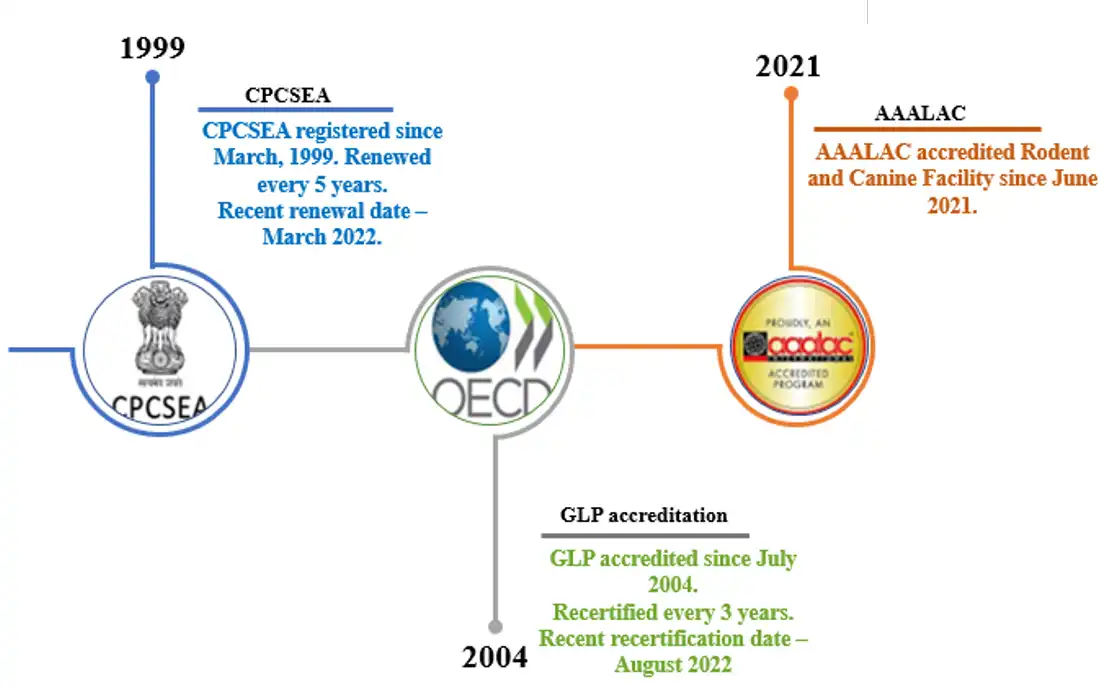
Connect with our scientific experts for your drug discovery, development, and manufacturing needs
We understand that clear communication is essential to successful collaborations, and that's why we have a dedicated team that is always ready to help you. Whether you have questions about our services, want to discuss a potential partnership, or simply want to learn more about our company, we're here to help.
Our team of experts is dedicated to providing personalised solutions tailored to your unique needs. So, please don't hesitate to reach out to us. We look forward to hearing from you and helping you achieve your business goals.
Learning Resources

Transforming Drug Discovery with Aurigene.AI
In the early 2000s, developing Sovaldi, a hepatitis C treatment, took over a decade and nearly $2 billion. Similarly, Zolgensma, a gene therapy for spinal muscular atrophy, required 15 years due to its complexity. However, the advent of artificial intelligence (AI) has revolutionized drug discovery. For example, in 2022, Pfizer's PAXLOVID, an oral COVID-19 treatm...
Read More
Advancement in personalized medicine and how the CRDMO industry is part of the solution
Personalized medicine is transforming the healthcare landscape by customizing treatment plans to individual patients’ unique genetic, clinical and environmental characteristics. These are effective and less invasive treatments for a wide range of conditions. Contract Research, Development and Manufacturing Organizations (CRDMOs) play an important role in enabli...
Read More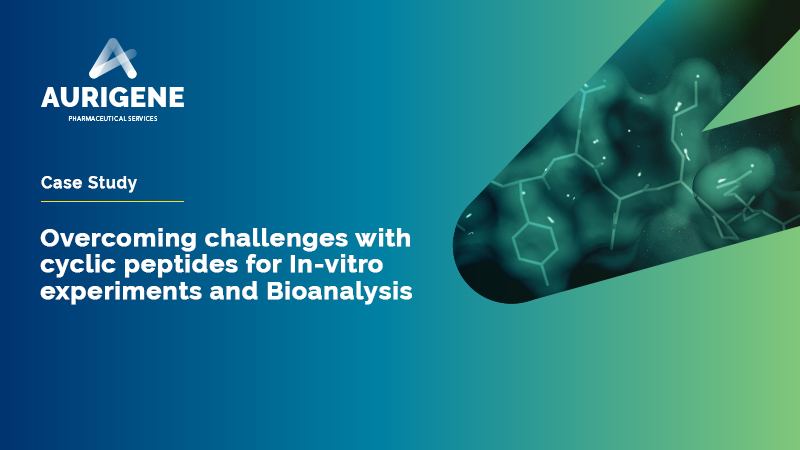
Overcoming challenges with cyclic peptides for In-vitro experiments and Bioanalysis
Project Requirement:Cyclic peptides were to be analyzed for Kinetic solubility, Chrom Log D, MDCK, PAMPA, & Caco2 experiments, while overcoming the challenges associated with the impact of cyclization of peptides on in vitro experiments and bioanalysisWhat were the challenges!1. Nonspecific Binding (NSB)2. Precipitation of peptides while spiking DMSO stock to...
Read MoreDevelopment and assessment of a Bcs class II - SGLT2 (Sodium Glucose Cotransporter 2) inhibitor drug in the form of solid lipid Nanoparticles by selecting different lipids, co-surfactants, and manufacturing techniques
2025
Drug Delivery System (DDS) has been used successfully in the past few decades to cure illnesses and enhance health because of its improved systemic circulation and ability to regulate the drug's pharmacological action. As pharmacology and pharmacokinetics advanced, the idea of controlled release emerged, demonstrating the significance of drug release in assessing...
Read More-
Development of novel paullone-based PROTACs as anticancer agents
2025
Proteolysis-targeting chimera (PROTACs) represents a promising modality that has gained significant attention for cancer treatment. Using PROTAC technology, we synthesized novel structurally modified paullone-based PROTACs using Cereblon (CRBN) and Von Hippel–Lindau (VHL) E3 ligands....
Read More -
Development and verification of RP-HPLC method for the quantitative determination of Decitabine in tablet dosage formulation
2025
Decitabine is an anti-cancer chemotherapy drug. This article describes method development and method verification of Assay of Decitabine in tablet formulation. A new, precise, rapid, accurate RP-HPLC method has been developed for the estimation of Decitabine in pharmaceutical tablets dosage form. After optimization the good chromatographic separation was achieved...
Read More -
The Impact of Nano-Suspensions on Drug Delivery: Enhancing Solubility and Therapeutic Efficacy
2025
At large, poor aqueous solubility remains a significant challenge in drug development and formulation limiting bioavailability and therapeutic efficacy. The formulation is deemed successful when it achieves the desired solubility and better bioavailability of the drug, which is important for pharmacological responses. However, 40 percent of newfound chemical enti...
Read More
China’s India headache: The growing pharmaceutical industry
2025
Indian CDMOs are strategically expanding through acquisitions in the US and Europe, driven by global pharma's nearshoring trend and a desire to diversify from China. These companies are investing in advanced technologies and specialized capabilities, particularly in biologics and complex chemistry, to capture a larger share of the global market. Aurigene pharmace...
Read More-
Dr. Reddy’s Laboratories, Aurigene Pharmaceutical Services, and Kainomyx announce potential partnership for joint development of affordable anti-malarial drug
2024
Dr. Reddy’s Laboratories Ltd. (BSE: 500124, NSE: DRREDDY, NYSE: RDY, NSEIFSC: DRREDDY; along with its subsidiaries together referred to as “Dr. Reddy’s”), and its CRDMO arm Aurigene Pharmaceutical Services Limited (Aurigene), today announced that they have signed a non-binding Memorandum of Understanding (MoU) with Kainomyx, Inc., a US-based company with ...
Read More -
Aurigene Pharmaceutical Services Limited, a global CRDMO, and Edity announce a strategic collaboration in cell therapy
2024
Aurigene Pharmaceutical Services Limited (Aurigene), a global contract research, development, and manufacturing services organization (CRDMO), will provide discovery services to Edity Therapeutics Limited (Edity) in cell therapy. Dr. Reddy’s Laboratories Limited, Aurigene’s parent company, recently made a strategic investment in Edity, a biotechnology company...
Read More -
Aurigene Pharmaceutical Services Limited, a global CRDMO, announces the opening of its biologics facility offering process development and clinical scale manufacturing capabilities
2024
Aurigene Pharmaceutical Services Limited (“Aurigene”), a Dr. Reddy’s Laboratories Limited company, inaugurated its biologics facility spread across 70,000 sq.ft. in Genome Valley, a bio cluster, located in Hyderabad, India. The facility is designed to serve customers with process & analytical development and small scale manufacturing of antibodies and o...
Read More
CPHI Frankfurt 2025
Messe Frankfurt
28-30 October, 2025
-
DCAT Week 2025
Lotte New York Palace, 455 Madison Avenue, at 50th Street, New York NY - 10022
17-20 March, 2025
You are about to leave Aurigene Pharmaceutical Services and affiliates website. Aurigene Pharmaceutical Services assumes no responsibility for the information presented on the external website or any further links from such sites. These links are presented to you only as a convenience, and the inclusion of any link does not imply endorsement by Aurigene Pharmaceutical Services.
If you wish to continue to this external website, click Proceed.

Leaving already?
Don't forget to join us at
CPHI Worldwide 2023.
October 24th-26th, 2023 | Barcelona, Spain
Get ready to accelerate your drug’s journey to the market

